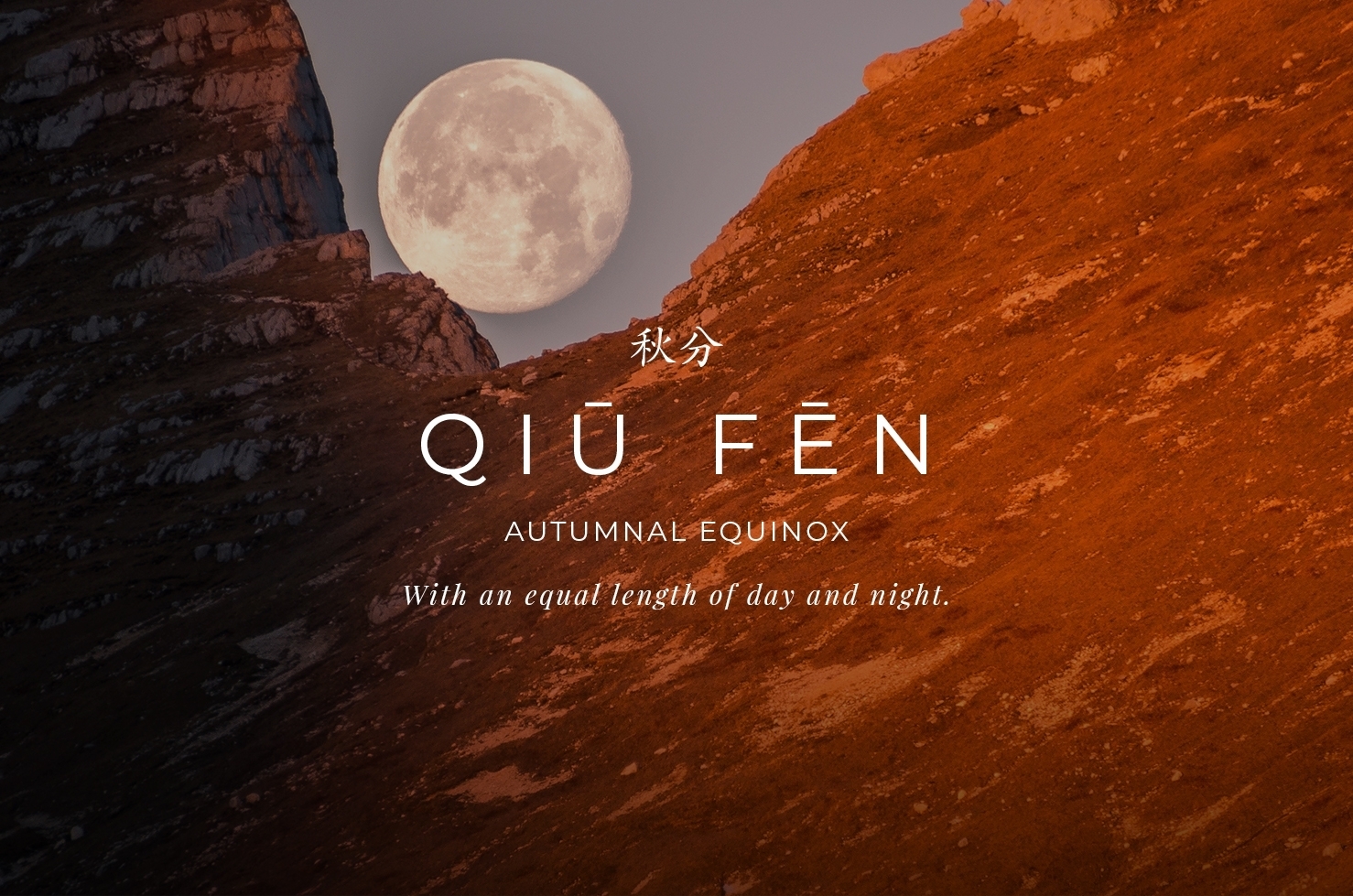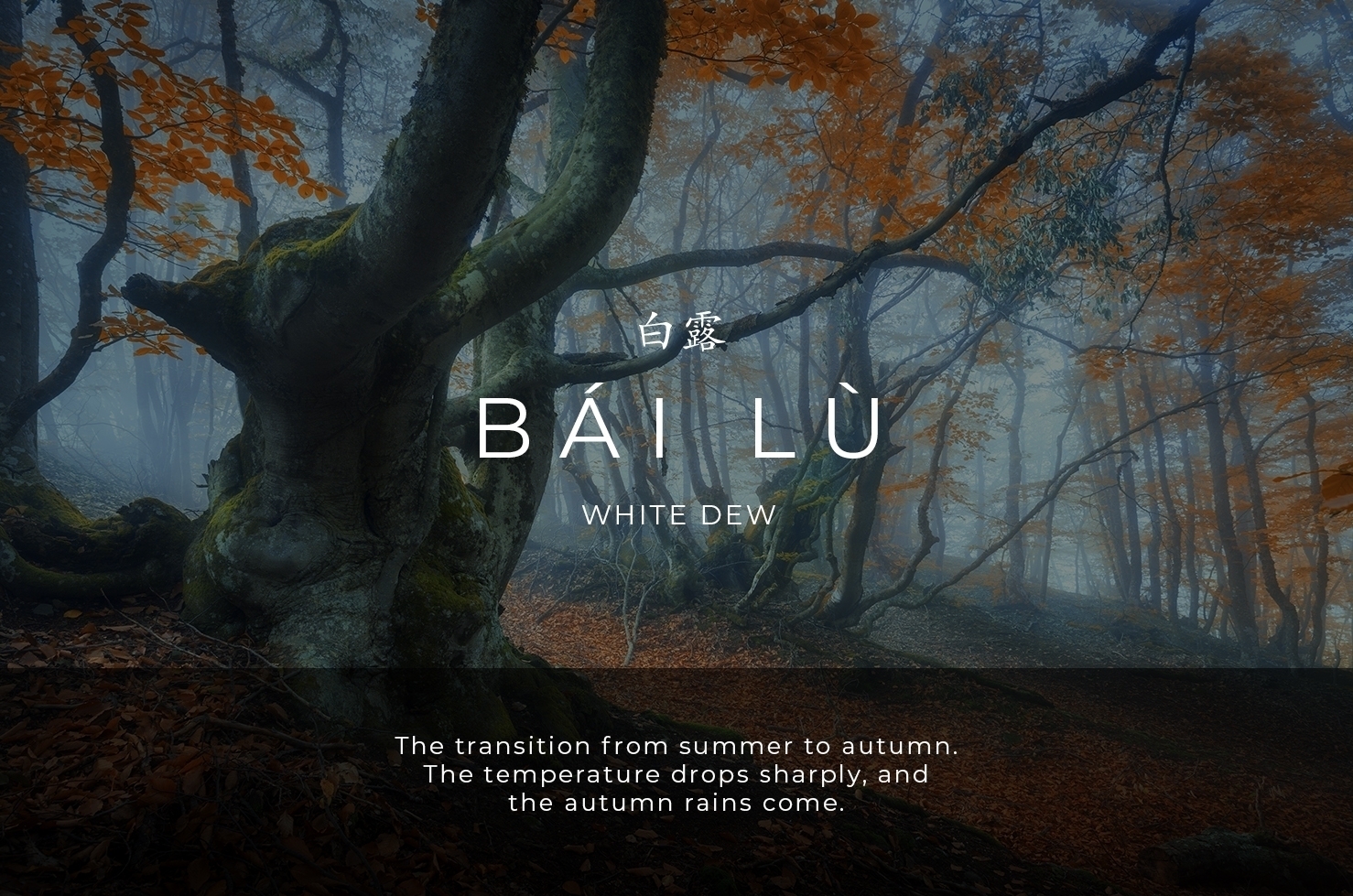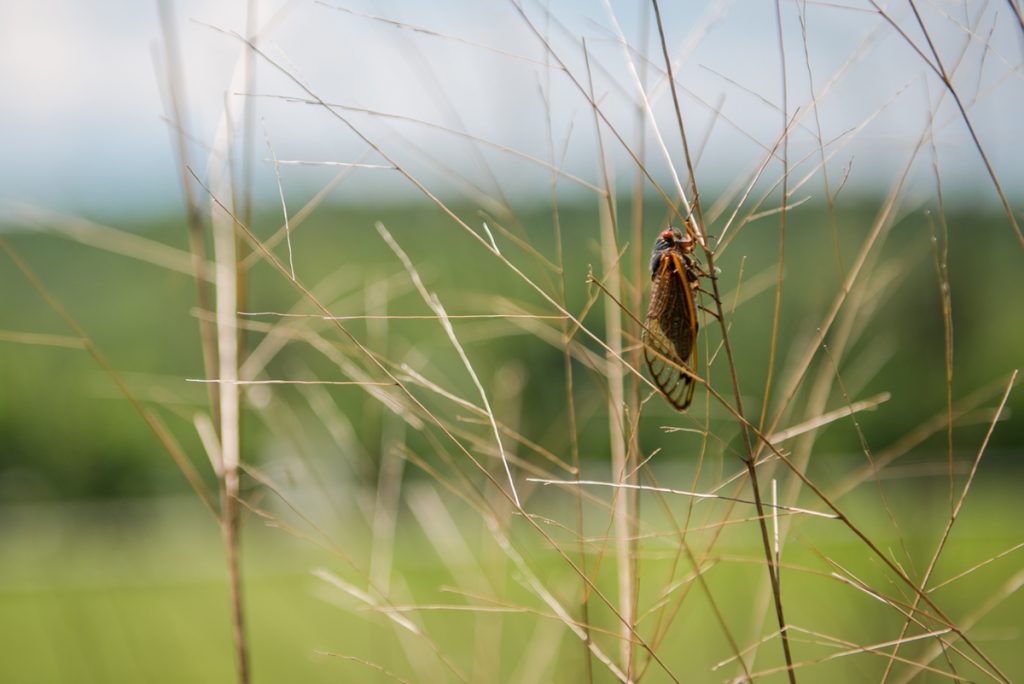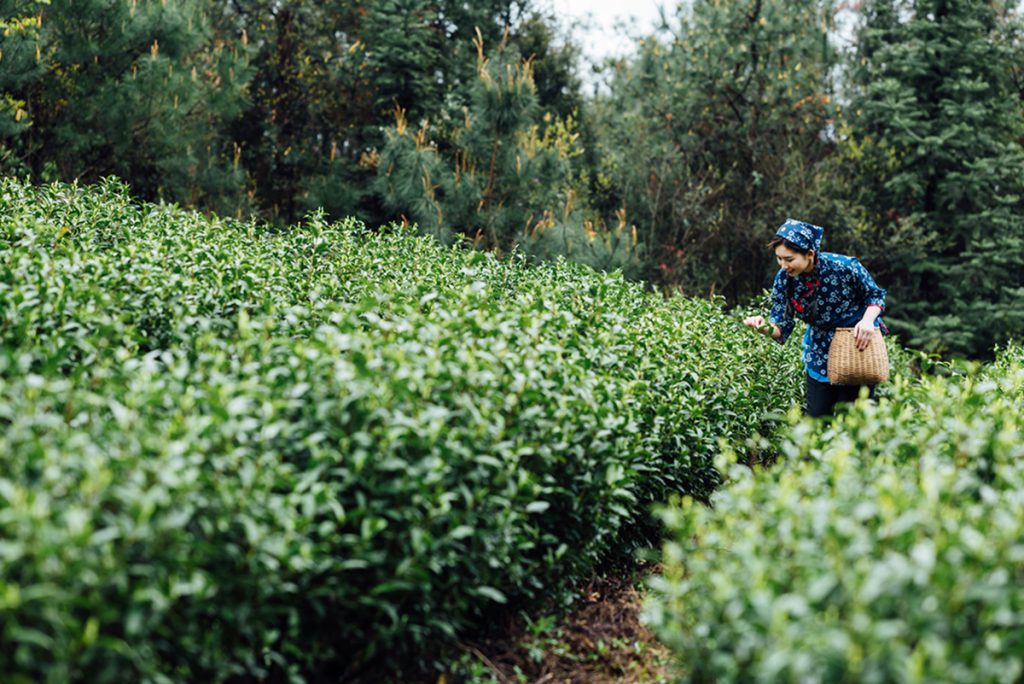Qiū Fēn: Autumnal Equinox
秋分 Qiū Fēn: Autumnal Equinox
秋分 Qiū Fēn, known as the Autumnal Equinox is the 16th solar term on the Ancient Chinese Solar Calendar and the 4th term of the fall season. This year it starts on September 23rd and continues through October 7th. 秋分 Qiū Fēn begins when the sun reaches the celestial longitude of 180° and ends the longitude of 195°.
秋分 Qiū Fēn is the time when the night and day are equal in length, and the Yin Qi and Yang Qi are in balance. This means that the heat and cold are also balanced.
The night of White Dew and Autumn Equinox, one night is colder than the one before. – ancient Chinese proverb
Farmers in southern China are still harvesting rice during 秋分 Qiū Fēn and those living in the north are already planting winter wheat.
Thunderstorms calm down, insects make their nests and water dries up. – Ancient Chinese Proverb
Each of the 24 solar terms is further divided into 3 pentads or a group of five (5 days). Let’s take a look at the pentads for 秋分 Qiū Fēn:
1st pentad – 雷始收聲 thunder begins to soften
2nd pentad – 蟄蟲培戶insects make nests
3rd pentad – 水始涸 water begins to solidify
中秋節Zhōng Qiū Jié: The Mid Autumn Festival
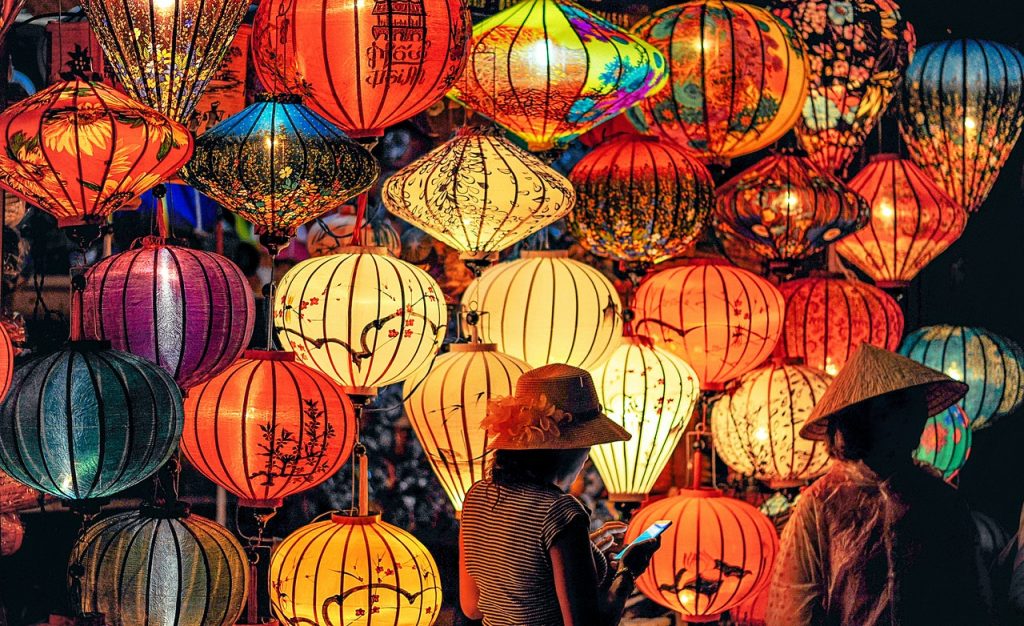
中秋節Zhōng Qiū Jié, translated as Mid-Autumn Festival, typically falls during the 秋分 Qiū Fēn solar term, however this year it fell on September 9th. This festival is one of the four most significant annual celebrations in the Chinese culture.
中秋節 Zhōng Qiū Jié has gone several stages of evolution throughout Chinese history. Dating back more than 3,000 years, the Mid-Autumn Festival originally celebrated the yearly harvest.
Approximately 1,500 years ago mooncakes, a traditional Chinese food, entered the scene and became a tradition on the day of 中秋節 Zhōng Qiū Jié, or Mid Autumn Festival.
Approximately 1,000 years ago during the Northern Song Dynasty (960-1127) of China 中秋節 Zhōng Qiū Jié became an official holiday.
Since that time The Mid-Autumn Festival has continued gaining national popularity and has maintained its great importance among the Chinese annual festivals.
There is also an ancient legend that tells the origin of 中秋節 Zhōng Qiū Jié, or Mid Autumn Festival.
The Legend of 10 Suns during Qiū Fēn: Autumnal Equinox
Once long ago, according to Chinese Legend, there were 10 suns. It was so hot that no crops survived and people were dying. Hardship and famine filled the land. And then there appeared a hero archer whose name was Hou Yi and who was skilled enough to shoot down nine of those suns, bringing relief to the land and people. To express her appreciation, the Queen of Heaven gifted Hou Yi with an elixir of immortality. The hero archer chose not to drink it and instead gave it to his wife Chang’e for safekeeping.
On the 15th day of the 8th Lunar month one of Hou Yi’s followers attempted to steal the immortality elixir from Chang’e when her husband was away hunting. To preserve the elixir Chang’e drank it which made her immortal. As a result Chang’e had to leave Earth, making Moon her home. Hoping to be reunited with his beloved, the hero Hou Yi presented cakes that looked like moons to the Moon on the 15th day of the 8th Lunar month every year for the remainder of his life.
As the bright moon shines over the sea
From far away you share this moment with me
For parted lovers nights are the worst to be
All night long I thing of no one else by thee
To enjoy the moon I blow out the candle stick
Please put on your nightgown
For the dew is thick
I try to offer you The moonlight so hard to pick
Hoping a reunion
In my dream will come quick-by poet张九龄 Zhang Jiuling (678-740) of the Tang Dynasty
Osmanthus Flowers
Picking and using Osmanthus flowers to make wine is traditional in China during this festive time of year.
You [osmanthus] are so tender, though of pale, light yellow hue
Far from caress of heart and hand, fragrant are you
How can you need the color of rose or green jade
Beside you all other beautiful flowers fade
Envious mumes should grow
Chrysanthemums feel shy
By balustrades you blow
Under mid-autumn sky
The poet Zu must be insensible of your beauty
Oh how could he forget to praise you was his duty- by poet易安居士Li Qingzhao (1084 –1155) of the Song Dynasty
The Moon
The moon is its fullest and brightest on the Autumnal Equinox, symbolizing family reunion and inviting people of all ages outside to enjoy looking at the moon. Much of Chinese folklore and art is dedicated to the moon.
“When will the moon be bright and clear
With a cup of wine in my hand, I ask the deep blue sky Not knowing what is the time of year would be tonight in the palace on high
Riding the wind, there I would fly.
Yet I’m afraid the jade and crystal mansions would be too high and cold for me
Dancing to play with my shadow, how does it compare with in the world
Turning around the vermillion pavilion, stooping through the gauzed window
The moon shines upon the sleepless The moon should bear us no grudge
why is it oft full and bright when people part from each other
People may have sorrows and joys, partings and reunions
As well as the moon is bright or dim, wax and wane
Rare is perfect since the ancient times
May we live long and share the beauty of the moon together
Even if we are hundreds of miles apart.”-By poet 苏 轼 Sū Shì (1037–1101) of the Song Dynasty
The West Lake “Three Pools Mirroring the Moon” in Hangzhou, China is the place to be on the night of the Mid-Autumn Festival. It is the prime spot to appreciate the full moon. This lake and its symbolism is so significant to the Chinese, that they even printed the image of the “Three Pools Mirroring the Moon” on the back of one Yuan note.
It is important to slow down during this time of year and focus on self-nurturing, maintaining your inner peace, and safe guarding your emotional wellness.
May you continue to balance and harmonize yourself as we transition into the Autumnal Equinox. Maintain your inner peace and enjoy the journey!
Additional Resources
Looking for more information on this time of the year? Try these resources below, and enjoy!
Don’t forget to check out the newest videos on our YouTube Channel
Jammin’ With Jiao Shi


